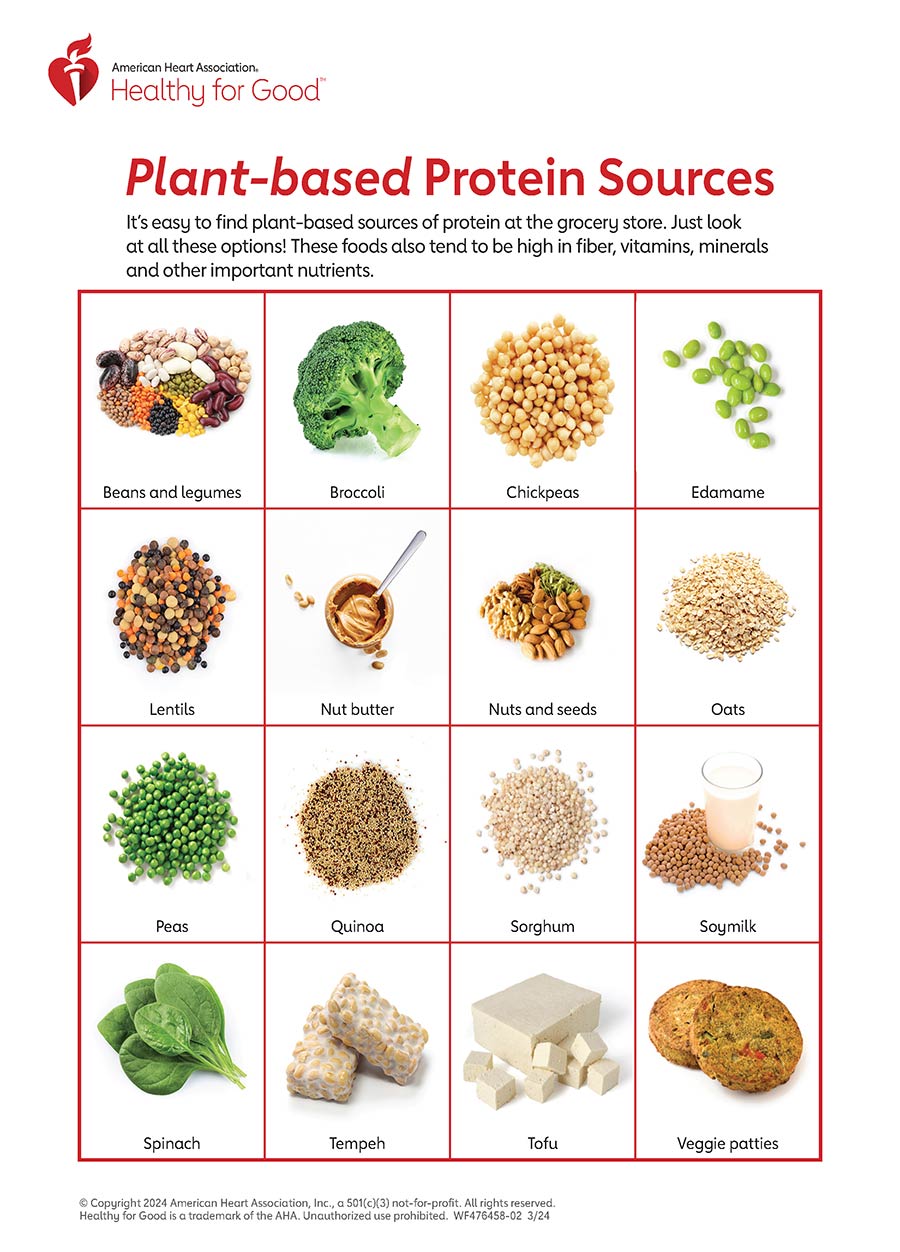How Gluten Free BBQ Sauce Elevates Your Vegan Grilling Game
How Gluten Free BBQ Sauce Elevates Your Vegan Grilling Game
Blog Article
All Concerning Healthy Food: Advantages of Checking Out Plant Based Options
The discussion surrounding plant-based diets has actually obtained considerable focus in the last few years. Several people are checking out the potential health benefits, nutritional advantages, and ecological impacts connected with these nutritional options. As people come to be much more knowledgeable about their food's impact on well-being and sustainability, concerns develop concerning the practicalities of embracing such a way of life. What specific adjustments can one expect, and how might these options improve not just personal health and wellness yet additionally the earth's future?
Understanding Plant-Based Diet Plans
Many people link plant-based diet regimens primarily with vegetarianism or veganism, these diets can encompass a wide range of consuming patterns that focus on entire, minimally refined plant foods. Such diet regimens typically include fruits, vegetables, entire grains, vegetables, nuts, and seeds, while restricting or eliminating pet items. This flexibility enables people to tailor their dietary options according to individual preferences and nutritional requirements. Some may embrace a mainly plant-based diet plan while still periodically consuming meat or dairy, typically described as a flexitarian technique. The focus stays on integrating even more plant foods, which can cause a diverse array of dishes and tastes. Recognizing these different interpretations of plant-based consuming is crucial for appreciating its access and charm in contemporary food society.
Health And Wellness Benefits of Plant-Based Foods
The health advantages of plant-based foods are considerable, offering a nutrient density benefit that supports overall health. Study indicates that these foods can improve heart health and wellness and play a crucial role in reliable weight management. By incorporating more plant-based options, individuals might boost their nutritional options and advertise long-lasting wellness.
Nutrient Thickness Advantage
Nutrient density plays a necessary duty in the wellness advantages of plant-based foods, making them an engaging choice for those looking for a well balanced diet plan. Plant-based foods, such as fruits, vegetables, beans, nuts, and whole grains, are frequently abundant in crucial vitamins, minerals, and antioxidants while being lower in calories. This high nutrient thickness enables individuals to consume fewer calories while still meeting their dietary demands. Additionally, these foods are loaded with dietary fiber, advertising digestion wellness and assisting in weight administration. By including nutrient-dense plant-based choices, customers can improve their general wellness, sustain their immune systems, and decrease the risk of chronic conditions. Inevitably, the nutrient density of plant-based foods highlights their importance in a health-conscious way of life.
Heart Wellness Renovation

Weight Management Support
In enhancement to advertising heart health and wellness, a plant-based diet regimen can considerably assist in weight administration. This dietary approach emphasizes entire foods such as fruits, vegetables, beans, nuts, and whole grains, which are normally lower in calories and greater in fiber contrasted to animal-based products. The high fiber material aids enhance satiety, minimizing overall calorie intake. Additionally, plant-based diets are typically abundant in important nutrients while low in unhealthy fats, making it easier to maintain a healthy weight. Plant Based Beef. Research indicates that individuals that embrace a plant-based way of life tend to have lower body mass indexes (BMIs) and experience more successful weight reduction contrasted to those who eat meat-heavy diet regimens. Welcoming plant-based options is a critical choice for reliable weight administration.
Nutritional Worth of Plant-Based Ingredients
Plant-based components are abundant in crucial nutrients, using a varied variety of vitamins, minerals, and anti-oxidants that add to total health. A contrast of protein sources exposes that while animal items are usually deemed exceptional, numerous plant-based alternatives supply adequate healthy protein and various other helpful compounds. Understanding the dietary worth of these active ingredients can help individuals make educated nutritional selections.
Vital Nutrients in Plants
Nutrient-rich ingredients located in plants provide a diverse variety of important vitamins and minerals that contribute greatly to overall wellness. These ingredients are abundant in vitamins A, C, and K, which support immune function, vision, and blood clotting, specifically. Additionally, plants offer essential minerals such as calcium, potassium, and magnesium, important for heart wellness, muscle function, and bone strength. The existence of fiber in plant-based foods help food digestion and advertises a healthy intestine microbiome. Antioxidants, located abundantly in veggies and fruits, aid battle oxidative stress and minimize inflammation. Many plant foods are reduced in calories yet high in nutrients, making them an outstanding option for those looking for to keep a healthy weight while ensuring optimal nutrient consumption.
:max_bytes(150000):strip_icc()/VWF-Plant-Based-Eating-V6-edit1-0a05c9c9c14e489b8e981fbb0221d49e.jpg)
Comparing Healthy Protein Resources
Protein sources differ significantly in their nutritional profiles, with plant-based active ingredients using special benefits. Unlike animal healthy proteins, which often include hydrogenated fats and cholesterol, plant proteins often tend to be lower in these undesirable parts. Legumes, nuts, seeds, and whole grains are rich in important amino acids, fiber, vitamins, and minerals. As an example, lentils supply high protein material together with significant iron and folate, while quinoa is a total healthy protein, using all 9 important amino acids. Additionally, plant-based healthy proteins are commonly gone along with by antioxidants and phytochemicals that support overall health. The change to plant-based healthy protein sources not only improves nutritional intake yet also lines up with lasting dietary techniques, minimizing ecological effect and advertising lasting wellness benefits.
Environmental Impact of Plant-Based Consuming
As understanding of environment adjustment grows, many people are discovering lasting nutritional options that can significantly decrease their ecological impact. Plant-based eating has become a considerable contributor to decreasing greenhouse gas exhausts, which are primarily connected with livestock production. The growing of fruits, vegetables, grains, and beans typically calls for fewer resources, such as water and land, compared to pet farming. Furthermore, plant-based diet regimens can bring about decreased logging, as much less land is needed for grazing livestock or expanding animal feed. By changing towards plant-based alternatives, this link consumers can sustain biodiversity and promote much healthier ecological communities. Overall, accepting plant-based eating not just benefits personal health and wellness yet also represents an important step towards ecological sustainability and conservation efforts.
Conquering Common Misconceptions
While lots of people recognize the benefits of a plant-based diet, a number of false impressions typically prevent them from totally accepting this lifestyle. A typical idea is that plant-based diet regimens do not have enough protein; nevertheless, many plant sources, such as legumes, nuts, and tofu, supply enough healthy protein. In addition, some presume that this diet regimen is costly, when as a matter of fact, staples like beans, rice, and seasonal veggies can be quite affordable. An additional misunderstanding is that plant-based eating is excessively restrictive, whereas it actually offers a diverse range of tastes and foods. Many stress that a plant-based diet might lead to shortages, yet with proper planning, people can acquire all needed nutrients, consisting of vitamins and minerals, while enjoying a wide selection of tasty meals. Vast Tips for Transitioning to a Plant-Based Way of living
Making the change to a plant-based way of living can be an enhancing experience, though it often calls for some assistance to browse the first adjustments. First, people are encouraged to start gradually, including even more fruits, veggies, legumes, and whole grains right into their dishes while lowering meat and milk consumption. Meal planning is essential; preparing a weekly menu can aid reduce the modification and protect against last-minute harmful options. Discovering brand-new dishes and cooking approaches can likewise keep and boost the experience exhilaration about plant-based consuming. Furthermore, joining assistance groups or neighborhoods can offer motivation and share useful ideas. Staying notified about nutrition assurances well balanced dishes, protecting against deficiencies while cultivating a healthy, satisfying plant-based way of living.

Delicious Plant-Based Dish Ideas
Discovering scrumptious plant-based meal concepts can influence people to accept an extra healthy diet plan. One preferred option is a passionate quinoa salad, featuring cherry tomatoes, cucumber, and a spicy lemon-tahini dressing. An additional favorite is a mouthwatering lentil stew, loaded with carrots, celery, and aromatic herbs, ideal for a comforting dinner. For breakfast, over night oats made with almond milk, chia seeds, and covered with fresh berries give a nutritious start to the day. Additionally, a dynamic veggie stir-fry with tofu and a range of vivid veggies can be a fast yet pleasing dish. Finally, velvety avocado salute on whole-grain bread, sprayed with spices and seeds, uses a simple yet delicious snack. These dishes showcase the range and richness of plant-based eating.

Regularly Asked Inquiries
Can a Plant-Based Diet Offer Sufficient Healthy Protein?
The concern of whether a plant-based diet can give sufficient protein is common. Countless sources, consisting of legumes, nuts, seeds, and whole grains, can meet healthy protein requires successfully, supporting a healthy and balanced diet plan for people.
Are Plant-Based Diet Regimens Suitable for Kid?
The YOURURL.com suitability of plant-based diet regimens for youngsters depends on mindful preparation. Adequate nutrients must be ensured, consisting of vitamins, healthy proteins, and minerals. With appropriate assistance, such diets can support healthy and balanced development and development in children.
How Do I Eat Out on a Plant-Based Diet?
Eating out on a plant-based diet regimen involves seeking restaurants with varied food selections, requesting for modifications, and discovering vegan-friendly choices. Planning in advance and interacting dietary preferences can improve the dining experience while maintaining dietary options.
What Are Typical Allergens in Plant-Based Foods?
Common allergens in plant-based foods include soy, gluten, nuts, and seeds - Sugar Free Sauces. Individuals following official statement a plant-based diet plan ought to understand these irritants and review labels very carefully to avoid adverse responses and ensure risk-free consumption
Can Plant-Based Diets Assist With Weight Reduction?
Research shows that adopting a plant-based diet regimen might facilitate weight loss due to its generally reduced calorie thickness and higher fiber material. This mix can boost satiation, helping individuals manage their calorie intake successfully. Several individuals connect plant-based diets mostly with vegetarianism or veganism, these diets can incorporate a large variety of eating patterns that focus on whole, minimally processed plant foods. Nutrient thickness plays a crucial duty in the health and wellness advantages of plant-based foods, making them a compelling option for those seeking a well balanced diet plan. Plant-based diet plans have been shown to markedly boost heart health and wellness, as they commonly contain aspects that sustain cardiovascular function. In enhancement to advertising heart wellness, a plant-based diet regimen can substantially assist in weight monitoring. A common belief is that plant-based diets do not have adequate protein; however, numerous plant sources, such as legumes, nuts, and tofu, supply enough protein.
Report this page